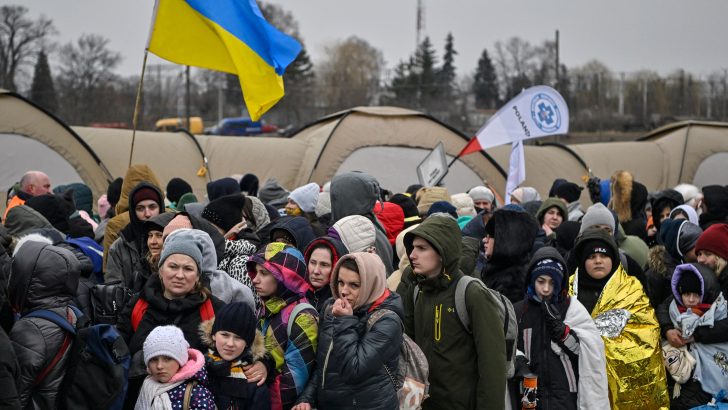UNHCR is concerned at the scale of proposed reductions in social protection benefits for Beneficiaries of Temporary Protection living in state provided serviced accommodation in Ireland announced this week.
The proposed cuts would leave beneficiaries of temporary protection with just €38.80 a week, a drastic cut from the current €232 per week they have been receiving. The Irish government announced the change in policy will come into effect in approximately 12 weeks’ time, while details of the reductions to payments will be finalized in the interim.
UNHCR urges the Irish government to carefully consider the scale of the proposed reductions, and to carry out a thorough review of their impact before implementing any changes.
Many of the almost 27,000 people estimated by government to be living in such accommodation are vulnerable, including children, older people, women at particular risk and people with disabilities. Some of those affected may be unable to work or to sustain themselves and depend on ongoing support from the government. Care should be taken to ensure that these vulnerable groups are protected from any reductions that would have an adverse impact on them.
The proposed new allowance of €38.80, is the same weekly amount currently provided to adult international protection applicants, an amount which has not increased since 2019 despite significant inflation and cost of living increases. UNHCR urges the government to ensure that the proposed allowance is aligned with the increased costs of living and is sufficient to provide a dignified standard of living for all seeking protection.
UNHCR also encourages the government to provide all necessary resources to support the self-reliance of refugees from Ukraine, so that people with valuable skills and experience can work and, where possible, rent independently.
Barriers to employment should be tackled, including through enhanced access to language courses, affordable childcare, labour market supports and the recognition of prior qualifications and experience.
Maintaining access to social protection benefits such as the Working Family Payment and Rent Supplement will support independence for those in low paid employment.



